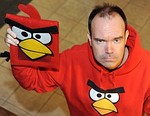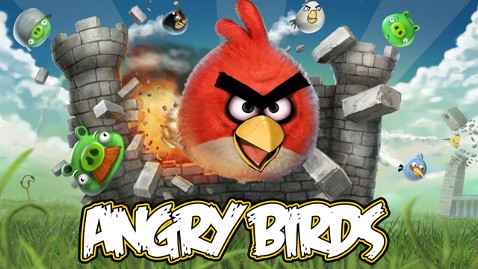In the tech world, companies are often encouraged to go public for many reasons, not the least of which being the infusion of cash that helps for expansion, improved conditions, and innovations. In most cases, growing companies like Rovio should consider an IPO to build upon the momentum they have. When you’re hot, you’re hot, and it’s the time that most choose to strike the iron.
Rovia is one of the exceptions. Here’s why:
They’re profitable. Very profitable.

By sheer percentages, Rovio is at the top of the profit food chain. While many companies their age (founded in 2003 under the name Relude) are struggling to make a profit, they have achieved a resounding win in that department, posting 64% pretax profits against $106.3 million in revenue.
It’s not the kind of numbers that will have them taking over the gaming world anytime soon, but it’s enough to make a cash infusion less of a necessity. They can grow at a good pace, fast enough to keep up with the vast range of competitors in the mobile gaming space. If they need more, they can borrow.
More than just a game. It’s a brand.

As Zynga learned, social and mobile games can be extremely fickle. One moment, you’re on top of the world. The next moment you’re wondering where 1/3rd of your players went.
Angry Birds has stood the test of time (at least in mobile gaming terms) by continuing to successfully grow with every new version since 2009. They’ve expanded beyond gaming in their association with the movie Rio. They have a television series in the works and plans for their very own Angry Birds movie.
Merchandising. Sponsorships. Contests. They are building a brand that is primed for growth. By itself this fact does not prohibit them from going public, but it does show an upside that makes an IPO less attractive. If you’re owning a multi-billion-dollar franchise and there aren’t a lot of financial challenges hindering you, why sell part of the company off any time soon?
Sacrifice
There’s an emotional attachment inherent with any company that’s built from pure desire. Co-Founder and CEO Mikael Hed went through some rough times before Angry Birds was a hit including his father and majority owner Kaj mortgaging his own parents’ home to keep the company afloat. The risk paid off and now the grandparents of the CEO can have houses everywhere if they would like, but at the time it was a risk he almost didn’t take.
“He (his father) told me that he wanted to mortgage my grandparents’ flat so he could put some more money in the company to keep it afloat,” Mikael Hed. “That was pretty tough. I certainly did not want to be the person responsible for putting my grandparents on the street.”
When you’ve fought wars and sacrificed to claw your way to the top, it’s hard to cash out. Even by retaining control (which the Hed’s certainly would even with an IPO) there’s still a sense of owing and accountability to shareholders that influences decisions. They can no longer be strictly from the heart or based upon gut instinct. They have to be backed by facts and analysis, something that many companies have a challenge with once they have gone public.
* * *
There are pros and cons to any IPO which is why Rovio is still considering their options. Unless something major happens in the next few months, expect them to continue on their current path of success despite rumors to the contrary.



Leave a Reply